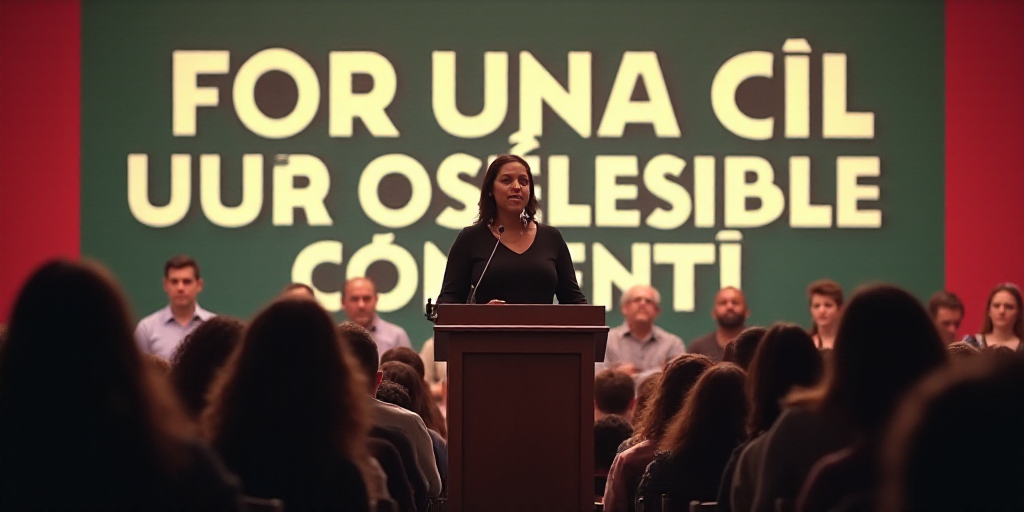Introduction to Clara Brugada and the Gentrification Issue
Clara Brugada, the head of government in Mexico City, has unveiled a set of measures to tackle the rising housing prices, protect indigenous communities, and curb real estate speculation in areas such as Condesa, Roma, and Doctores. This initiative, known as Bando 1 “Por una ciudad habitable y asequible con identidad y arraigo local,” aims to implement 14 actions to regulate housing prices, prevent evictions, and ensure the right to the city.
Background on Clara Brugada and Her Relevance
Clara Brugada, a prominent figure in Mexican politics, has taken the helm as the head of government in Mexico City. With a background in law and public administration, she has been actively involved in addressing social issues within the capital. Her recent initiative against gentrification highlights her commitment to preserving the city’s cultural identity and ensuring affordability for its residents.
Gentrification in Mexico City: Causes and Consequences
Gentrification has led to the escalation of rents and services in neighborhoods like Condesa, Roma, and Doctores. This phenomenon has resulted in the displacement of original residents, fraudulent notarial acts, evictions, and forced displacements, often involving businesses and authorities. The issue has become a significant concern for Mexico City’s diverse communities.
Bando 1: 14 Actions Against Gentrification
- Rents Stabilization: Rents cannot increase beyond the annual inflation rate reported by INEGI. Legal mechanisms will be established to ensure compliance.
- Reasonable Rent Index and Areas of Real Estate Tension: Comprehensive policies will be implemented to strengthen community fabric in areas with high real estate pressure.
- Regulation of Temporary Rentals and Digital Platforms: An objective methodology will be established to control temporary accommodation platforms like Airbnb.
- Tenants’ Rights Defense: A new public organ will offer legal defense, mediation, and sanctions against illegal evictions.
- Just and Affordable Rents Law: Legislation will be promoted to balance the rights of tenants and landlords, and regulate rental platforms.
- Sustainable Public Housing: Construction of public housing in central areas with a balanced densification approach.
- Affordable Rentals for Prioritary Sectors: Programs for social rental for young people, single mothers, seniors, and urban workers.
- Support for Progressive New Housing: Expansion of housing spaces in popular neighborhoods and creation of family condominiums.
- Combat Real Estate Speculation: Intervention in critical zones and promotion of affordable housing.
- Participatory Community Urban Planning: Consultation of residents in high-tension areas to define urban strategies.
- Arraigo and Protection of Patrimony Program: Policies to preserve public space and cultural/historical heritage.
- Incentives for Local Businesses: Credits and incentives for small businesses, traditional crafts, and SMEs.
- Community Participation in Inclusion Policies: Collective decisions on coexistence, arraigo, and reducing inequality.
- Land and Housing Observatory: An instance to systematize data on prices, contracts, and housing market trends.
Airbnb, Protests, and Potential International Pressure
Brugada warned that gentrification is not exclusive to Mexico City but a global issue. Platforms like Airbnb currently hold more than 26,000 housing units, mostly in central areas. Meanwhile, the city faces a shortage of over 500,000 affordable housing units.
Despite attempts to regulate and prevent unfair competition with the hotel sector, Airbnb has evaded stricter measures. Its presence is expected to expand further with the arrival of the 2026 FIFA World Cup.
Government Response to Protests and International Concerns
Brugada’s administration has implemented a protocol to ensure the right to protest through dialogue and institutional accompaniment of demonstrations. However, recent marches in Roma and Condesa have reported forced displacements alongside acts of vandalism, raising international concern.
Reports suggest that the Canadian government is pressuring FIFA to reconsider the Estadio Azteca as the inaugural venue for the 2026 World Cup due to social and urban tensions in Mexico City, Guadalajara, and Monterrey—the tournament’s host cities.
Key Questions and Answers
- What is gentrification? Gentrification refers to the transformation of lower-income neighborhoods into more affluent areas, often leading to displacement of original residents and escalating housing costs.
- Who is Clara Brugada? Clara Brugada is the head of government in Mexico City, known for her commitment to addressing social issues and preserving the city’s cultural identity.
- What is Bando 1? Bando 1 is a set of 14 actions launched by Clara Brugada’s administration to combat gentrification, regulate housing prices, and protect communities in Mexico City.
- What is the controversy surrounding Airbnb? Airbnb’s presence in Mexico City has been a subject of debate due to its contribution to rising housing costs and potential unfair competition with the hotel sector.
- Why is there international concern about gentrification in Mexico City? International attention has been drawn to the social and urban tensions in Mexico City, Guadalajara, and Monterrey due to the escalating gentrification issue, which may impact the 2026 FIFA World Cup’s host cities.






